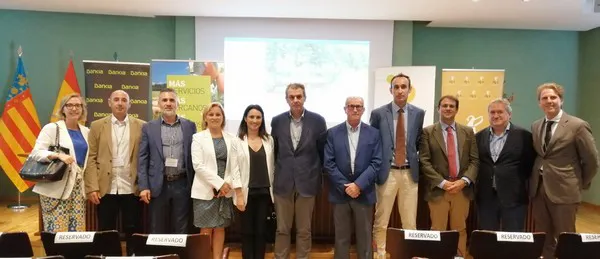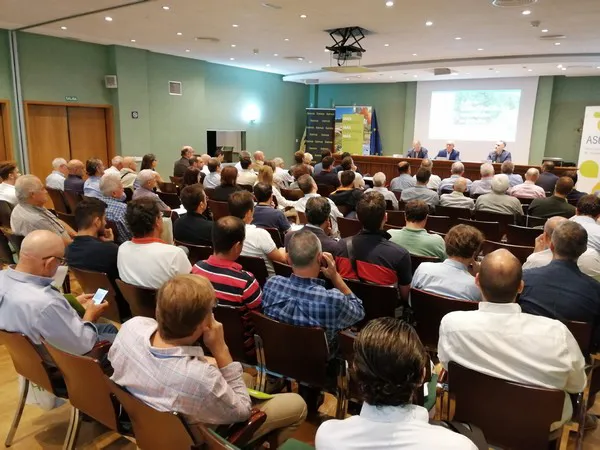According to the Association of Plant Variety Operators (ASOVAV), the recent emergence of second-season protected mandarin varieties - especially the Orri, Nadorcott, Tang Gold and, lately, Spring Sunshine varieties - have revolutionized the Spanish citrus sector because of the high profitability they offer producers, even in campaigns as critical as the previous one. The association made this statement yesterday, during a workday that brought together in Valencia the main protagonists of the agricultural, commercial, and legal world around these premium citrus fruits.
The president of ASOVAV, Celestino Recatala, stressed that “the protection system of these varieties guarantees both achieving production with added value, through a strong commitment to agricultural innovation, and a limited production thanks to the organization of the sector, in the form of clubs or variety management entities. This favors the strengthening of the farmer's position within the food chain and allows achieving a greater economic performance of their exploitation.”
"In its almost ten years of history," Recatala continued, "the association has become an entity that defends producers in their relationships, which can sometimes conflict with breeders and licensees of new plant varieties that awaken a greater market interest. From the start, we opted for this alternative route that reinforces the farmer's capacity of influence and, at the same time, promotes research, differentiation, and the product's brand.”

The president of the Valencian Association of Farmers (AVA-ASAJA), Cristobal Aguado, stated that “all experts agree that this type of variety management is the path that is allowing us to redirect the sector. That's why it's essential that the administrations bet on agricultural research.” In addition to the varietal challenge, he said, the sector also needs to design the future of citrus farming through the modernization and concentration of farms; which is why he asked 100 million euro from the Ministry of Agriculture to undertake pilot experiences that serve as a pilot reference to the collective.
The director of the Agr Food Marketing group, Mateo Blay, encouraged the citrus sector to “invest together in communicating differentiation by highlighting the name of the variety at the points of sale."
Experts in the legal field addressed the different legislations that refer to the obligation of the distribution chains to correctly identify the varieties of citrus fruits exposed in the points of sale. The main associate of the Garrigues Abogados law firm, Isabel Perez-Cabrero, said that "the European regulation provides for an administrative sanction on the marketers that don't clarify the variety of citrus hybrids."
The professor of Civil Law, Javier Plaza, said there was a regulatory deficit and demanded a more transparent geographical and variety identification, while the lawyer and associate professor of the Manuel Broseta Pont Commercial Law Department, Benjamin Saldaña said that "non-compliance with the use of the varietal denomination is weaker in the case of fruit than in that of plant material (seedlings)." Vicente Moles, a lawyer and partner of the Moles i Marti Advocats law firm, underlined the harsh demands imposed on nurseries and producers when purchasing plant material and legitimized the legal capacity of groups composed of producers or marketers to request a stoppage and the destruction of fruit from protected varieties in customs from third countries.

The member of the Legal Service of the European Commission (END), Javier Guillem, explained the agricultural particularity in competition law, with special emphasis on the novelties of the Omnibus Regulation and the Food Chain Directive. Guillem said it was not true that there was one filter for France or Germany, which has always benefited their continental crops more, and another more severe one for Spain.
Finally, agricultural technical engineers Vicente Pascual and Jose Vicente Antich told the attendees that the new second-season mandarins were highly productive but required careful management to increase the calibers to the standards required by the large European food distribution firms. Both engineers recommended using meshes, mooring branches, and the thinning of fruits, among other practices, to improve the productive performance of these citrus fruits.
The workday was organized by ASOVAV and AVA-ASAJA and was sponsored by Bankia and the Mutualidad Arrocera de Seguros-Agromas.
For more information:
Guillem de Castro nº 79 46008 VALENCIA
Phone: +34 963804606
info@asovav.es
www.asovav.com
